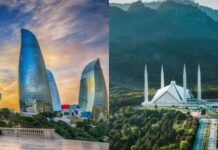Globalization and technology have brought vast wealth but not to everyone equally. In recent decades, economic growth and innovation have mostly filled the coffers of the already rich. The result is a staggering divide: according to the latest World Inequality data, the richest 10% of the world now capture well over half of global income, and that share keeps rising.
Average income figures (for example, about $1,065 per person per month globally) mask extreme gaps: the poorest half of humanity lives on only a fraction of that, while citizens of wealthy countries earn many times more. Within rich countries the picture is grim too; the United States is now one of the most unequal in the industrialized world, with its top 1% of earners claiming around 20% of national income, the same as in Mexico.
High Tech Fallout
High technology is accelerating this trend even more. A recent Massachusetts Institute of Technology (MIT) study found that automation is responsible for more than half of the increase in wage gaps between skilled and unskilled workers in the United States since 1980. Robots on assembly lines, automated checkouts in stores, and AI call centers have boosted corporate profits but displaced countless lower-paid jobs.
The result: college-educated workers saw significant wage gains, while many without a high school diploma actually earned less in real terms. Meanwhile, new digital platforms have concentrated wealth among a few tech giants. A handful of American companies now dominate virtually every layer of the digital economy from cloud servers and semiconductors to the apps on our phones. These corporations effectively “hold the keys to our digital future,” as ICT Works observes, giving them outsized power to capture profits.
Read More: Can AI Stop Hate Speech or Is It Becoming Part of the Problem?
However, globalization has also lifted millions out of poverty. Countries that embraced trade and technology (notably China, India and parts of Southeast Asia) saw rapid growth. Manufacturing and services moved to wherever labor was cheapest, which raised incomes abroad but sometimes hollowed out middle-class jobs at home. Economists call this the “elephant curve” developing- world incomes rising while stagnating or falling in parts of the developed world.
In the US and Europe, recent decades saw wage growth concentrate at the top. World Inequality Database notes that since 1980, the poorest 50% of people in most regions have hardly seen income gains, whereas the top 1% enjoyed growing shares. This unequal outcome is now fueling populism, as many workers feel excluded from progress.
Policy Interventions
Without intervention, economists and activists argue, market forces alone won’t correct these gaps. One widely discussed idea is Universal Basic Income (UBI), a regular cash payments to every citizen to guarantee a safety net. Pilots in various countries have had mixed but encouraging results. For example, a recent experiment in rural Kenya, where one of the largest UBI trials was conducted, found that even a moderate monthly payment lifted households out of extreme poverty and improved economic activity without making people “lazy”.
Recipients invested in small businesses and saw incomes rise, while work rates remained unchanged. Such experiments suggest that UBI (or targeted cash transfers) can empower the lowest earners and reduce extreme insecurity.
Taxing the Rich
Another lever is tax reform and redistribution. Around the world, public debate is growing about taxing the super-rich. An Oxfam report highlights that the richest individuals and companies saw record profit growth even as hunger and hardship rose globally. Oxfam argues that reclaiming just a fraction of that wealth through higher taxes could fund universal healthcare, education and climate resilience.
“Taxing the rich…claws back elite power and reduces not just economic inequality, but racial, gender and colonial inequalities, too,” it finds. Some countries are already moving: several European governments have proposed wealth taxes or global minimum corporate tax deals to prevent profit shifting. The key is progressive taxation, ensuring high earners and big multinationals pay their fair share.
Digital & Financial Inclusion
Finally, digital and financial inclusion can help distribute gains more broadly. Lack of internet access and financial services locks out many from opportunity. Organizations like UNESCO emphasize that technology is only equitable if “access to technology and connectivity” is distributed fairly. For instance, providing affordable broadband and digital skills training in under-served communities can enable people to join the gig economy or remote work.
Likewise, promoting microfinance and digital payment systems (as seen in mobile-money revolutions in Africa) helps lift people into the formal economy. Bridge programs for workers displaced by automation such as re-skilling in coding or advanced manufacturing can prevent the gap from widening.
Inequality is not an inevitable byproduct of progress; it is a political choice as much as an economic outcome. The data tells us the world can be richer with wealth spread out evenly. Will policymakers heed the evidence and reform tax codes, invest in people, and ensure technology serves everyone? Or will the gap between the “haves” and “have-nots” continue to grow?
Should we tolerate a world where a few prosper on the sidelines of globalization or push for bold solutions such as UBI trials, fair taxation, universal connectivity that promise a more inclusive future? The next generation’s prosperity hinges on that choice.






